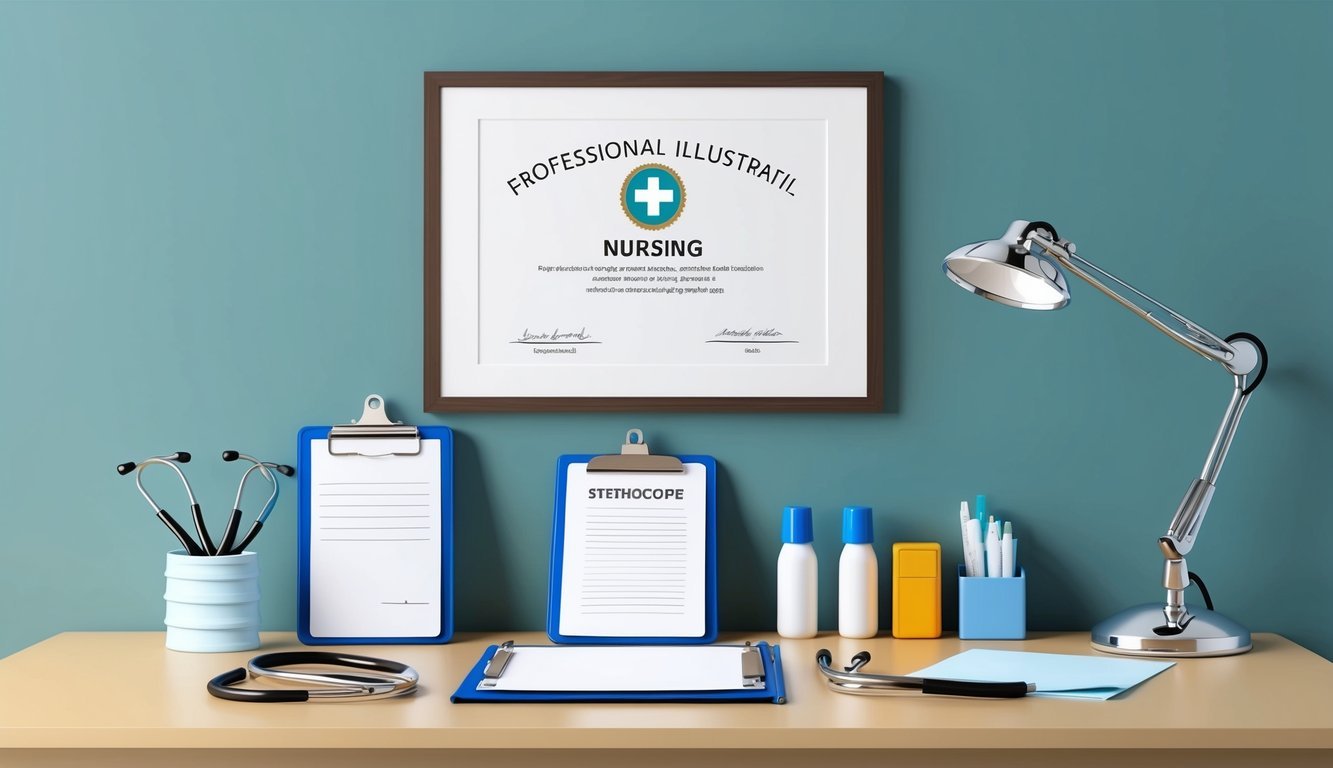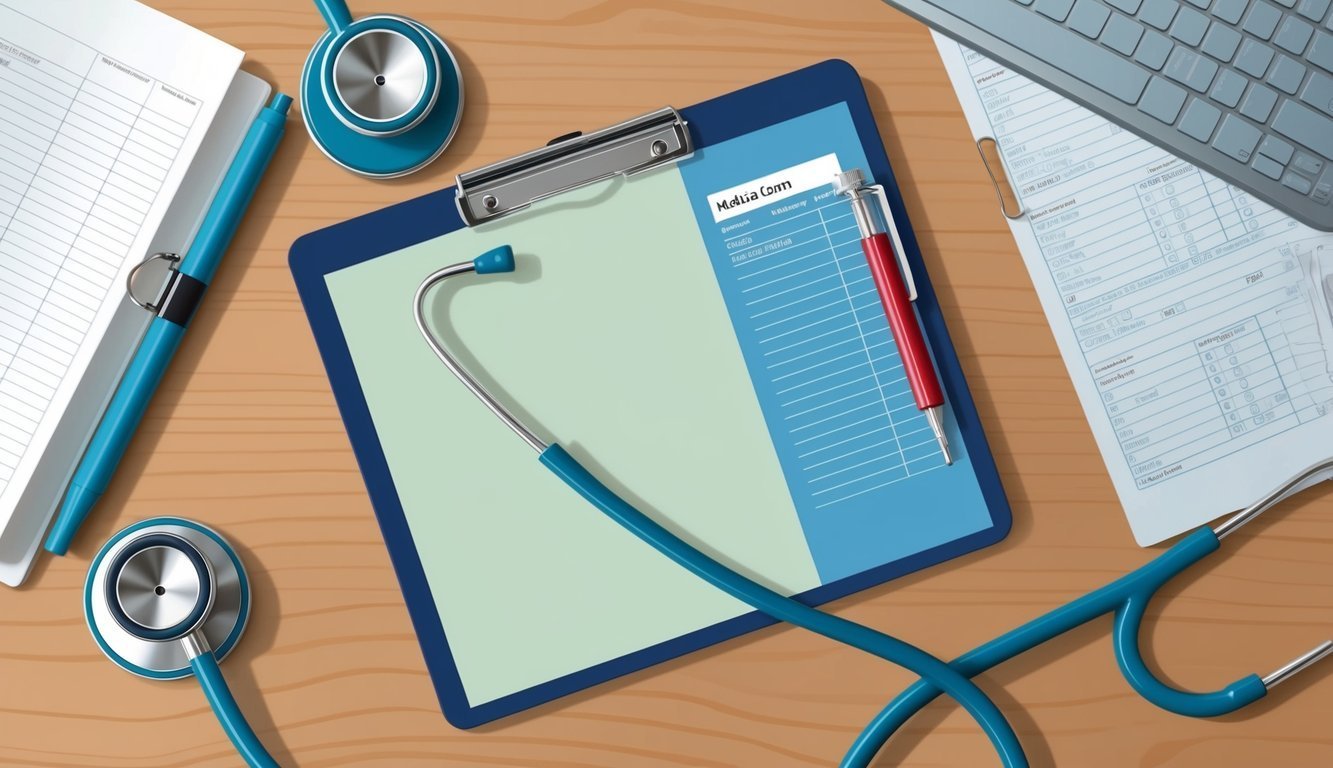In the competitive nursing profession, a well-crafted nursing resume can be the key that unlocks your career potential. Your resume should highlight not only your clinical skills, but also your unique experiences and accomplishments that differentiate you from other candidates in the job market. Whether you are a seasoned registered nurse or just starting your career, understanding how to tailor your resume effectively is crucial.
A strong nurse resume showcases your qualifications, certifications, and relevant experience while also aligning with the specific demands of the roles you are targeting.
Employers in the healthcare field look for candidates who can demonstrate both technical proficiency and a genuine commitment to patient care.
Utilizing modern resume formats and incorporating industry-specific keywords can significantly enhance your chances of passing resume-scanning technology and getting noticed by hiring managers.
As you embark on crafting your nursing resume, consider reviewing examples and expert tips to ensure your document stands out.
Resources such as Nurse.org and Resume Genius provide valuable guidance on structure, formatting, and content that will resonate with healthcare employers.
Professional Summary
Your professional summary is a critical component of your nurse resume.
It serves as a brief introduction that highlights your skills, experience, and qualifications.
Consider the following key elements when crafting your summary:
| Element | Description |
|---|---|
| Length | Aim for 2-3 concise sentences |
| Relevance | Tailor it to the specific nursing position |
| Focus | Emphasize your unique strengths and achievements |
Use clear language that captures immediate attention.
Mention your years of experience, areas of specialization, and key accomplishments.
For example, a strong nurse resume summary might start with:
“Compassionate Registered Nurse with over 5 years of experience in emergency care, proficient in patient assessments and critical decision-making.”
Incorporate keywords related to the job description to improve your chances with applicant tracking systems (ATS).
ATS often ranks resumes based on relevant keywords, enhancing the likelihood of your resume being seen by hiring managers.
Review your summary to ensure it aligns with your nursing philosophy and the specific role.
You want your summary to act as a compelling elevator pitch that encourages further reading of your resume.
For more detailed tips, check out resources like Indeed’s guide.
Contact Information and Credentials
Including accurate contact information and credentials on your resume is crucial.
This section helps potential employers verify your qualifications and reach you for interviews.
Licensing Information
Your nursing license is a fundamental component of your resume.
It ensures that you meet state requirements to practice as a nurse.
Always list your license number, the state of issuance, and the expiration date.
| License Type | State Issued | License Number | Expiration Date |
|---|---|---|---|
| Registered Nurse (RN) | California | RN123456 | 12/31/2025 |
| Licensed Practical Nurse (LPN) | Texas | PN654321 | 06/30/2024 |
Make sure to keep your licenses updated and monitor any continuing education requirements.
If you hold multiple licenses, list each one to showcase your versatility in different states.
Certifications
In addition to your nursing license, include any relevant certifications.
Certifications highlight your specialized skills and demonstrate your commitment to professional development.
Common certifications for nurses include Basic Life Support (BLS), Advanced Cardiovascular Life Support (ACLS), and Pediatric Advanced Life Support (PALS).
| Certification | Issuing Organization | Date Obtained | Expiration Date |
|---|---|---|---|
| Basic Life Support (BLS) | American Heart Association | 01/15/2024 | 01/15/2026 |
| Advanced Cardiovascular Life Support (ACLS) | American Heart Association | 02/20/2024 | 02/20/2026 |
Highlight these certifications prominently on your resume to illustrate your qualifications.
For more information on required certifications, visit Nurse.org.
Work Experience and Clinical Expertise

Your work experience and clinical expertise play a crucial role in showcasing your qualifications as a nurse.
Highlighting specific roles, specialized skills, and notable patient care achievements can significantly enhance your resume.
Relevant Work History
When detailing your work history, be explicit about your previous positions, including job titles, locations, and dates of employment.
For a registered nurse, this typically involves documenting experiences in various healthcare settings, such as hospitals, outpatient facilities, and long-term care facilities.
Focus on the types of units where you worked, such as acute care, where you likely gained critical care experience.
Use bullet points to present your responsibilities, including tasks like administering medications, assisting in surgeries, or managing patient treatment plans.
Quantifying your achievements, like “managed a case load of 15 patients daily,” can demonstrate your effectiveness.
Specialized Nursing Fields
Identify any specialized fields in which you have experience.
This could include areas like wound care, pediatric nursing, or critical care.
Each specialty requires a distinct set of skills and knowledge, which should be clearly communicated.
For example, if you have worked in wound care, detail your experiences related to patient assessments and treatment plans.
You might mention certifications you’ve obtained, such as becoming a Certified Wound Care Nurse (CWCN).
Highlighting specific techniques or technologies you are proficient in, such as negative pressure wound therapy, can further illustrate your expertise.
Patient Care Achievements
Showcasing your achievements in patient care demonstrates your commitment and effectiveness as a nurse.
Include any awards or recognition you received for outstanding patient service.
This could involve initiatives you led to improve patient outcomes or innovative practices you implemented.
Consider incorporating metrics that quantify your success, such as a reduction in hospital readmission rates or improved patient satisfaction scores.
Utilize brief narratives to describe challenges you faced and how you overcame them, emphasizing your critical thinking and problem-solving skills.
Illustrating your impact on patient care sets you apart from other candidates.
Educational Background
Your educational background is crucial when creating a nursing resume.
It showcases your qualifications and the specific training you have received to prepare you for nursing roles.
Two key components are advanced degrees and clinical rotations, both of which enhance your appeal to potential employers.
Advanced Degrees
Many nursing roles now require advanced degrees, such as a Master of Science in Nursing (MSN) or even a Doctor of Nursing Practice (DNP).
These qualifications prepare you for specialized positions like Nurse Practitioner or Clinical Nurse Specialist.
Employers often value these degrees because they indicate a higher level of competency and expertise in patient care.
Incorporating your advanced degree details in your resume is essential.
You should list the degree, the institution, your graduation year, and any relevant honors.
For instance:
| Degree | Institution | Year |
|---|---|---|
| Master of Science in Nursing | University of California | 2023 |
| Bachelor of Science in Nursing | Florida State University | 2021 |
Make sure to include any specializations, as they further enhance your qualifications.
Clinical Rotations
Clinical rotations are integral to your nursing education.
They provide hands-on experience in various specialties and allow you to apply your theoretical knowledge in real-world settings.
Listing relevant rotations on your resume demonstrates practical skills and adaptability.
When detailing your clinical rotations, include the following information:
- Specialty area (e.g., pediatrics, oncology)
- Duration of the rotation
- Key responsibilities and skills acquired
For example:
| Specialty | Duration | Responsibilities |
|---|---|---|
| Pediatrics | 12 weeks | Conducted patient assessments, collaborated with nursing staff |
| Critical Care | 8 weeks | Assisted in emergency procedures, monitored vital signs |
Highlighting clinical rotations shows employers you are well-equipped for various nursing roles, enhancing your resume’s effectiveness.
Key Skills and Competencies
To succeed in the nursing profession, you need a mix of technical abilities and interpersonal traits.
Your skills not only impact patient care but also enhance team dynamics and effective communication within healthcare settings.
Technical Nursing Skills
Technical skills are essential for providing quality patient care.
These include the ability to monitor vital signs, use medical equipment, and perform precise procedures.
Proficiency in tasks such as administering medications, understanding medical software, and keeping accurate patient records is crucial.
You should also be adept in specialized areas like cardiology, neurology, or pediatrics, depending on your focus.
Technical skills require ongoing education and training to keep up with advancements in healthcare.
A list of key technical skills includes:
- Monitoring Vital Signs: Checking pulse, blood pressure, and temperature.
- Patient Assessment: Evaluating patient conditions through observation and tests.
- Use of Medical Technologies: Operating equipment for diagnostics or treatment.
Interpersonal and Communication Skills
Interpersonal skills are vital for building trust with patients and collaborating with healthcare teams.
Effective communication involves not only speaking clearly but also active listening, which helps you understand patient concerns and respond appropriately.
Your emotional intelligence plays a key role in managing difficult situations and nurturing patient relationships.
Being empathetic helps you connect with patients on a personal level, ensuring they feel comfortable discussing their needs.
Here are important interpersonal skills:
- Active Listening: Fully focusing on what the patient is saying.
- Teamwork: Collaborating effectively with other healthcare professionals.
- Cultural Sensitivity: Respecting diverse backgrounds and viewpoints.
Adaptability and Response to Feedback
In a fast-paced environment, you need to be adaptable.
Staying calm and adjusting to changing situations can significantly impact patient outcomes.
You might face unexpected challenges, such as fluctuating patient loads or new procedures.
These situations require quick thinking and flexibility.
Being open to feedback is equally important.
Constructive criticism helps you grow and improve your practice.
When you respond positively to feedback, you enhance not only your skills but also the overall teamwork within your unit.
Key traits in adaptability include:
- Time Management: Prioritizing tasks effectively to enhance patient care.
- Critical Thinking: Analyzing situations to make informed decisions.
- Attention to Detail: Minimizing errors and ensuring precise care.
For additional resources on nursing skills, consider exploring platforms such as Indeed or Resume Genius for further insights.

